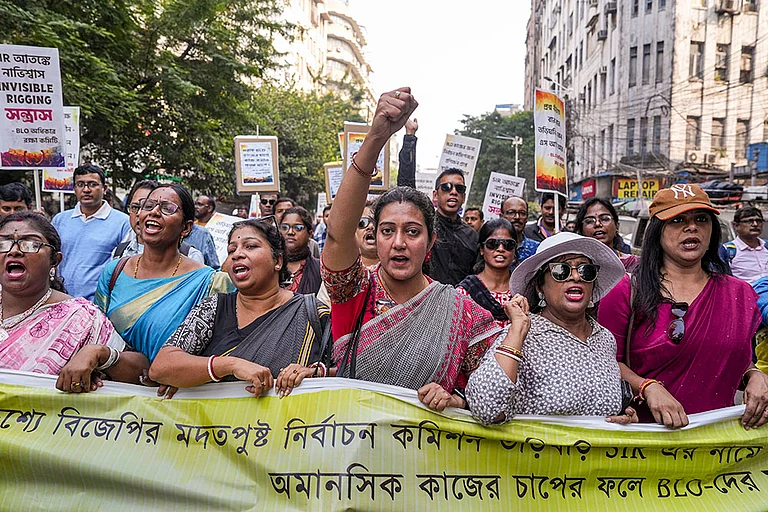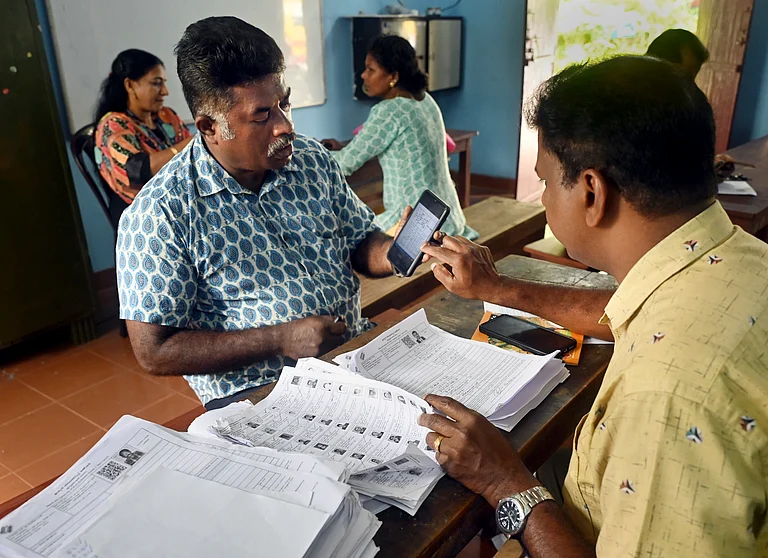
The West Bengal CEO’s office announced that nearly all voters listed on the rolls as of October 28 have received enumeration forms for verification and updating.
Voters have been instructed to fill the forms carefully, follow the prescribed procedures, and authenticate them with a full signature or thumb impression; false or misleading entries may lead to action under electoral laws.
The exercise, supported by QR-coded forms for tracking, is aligned with the Election Commission’s nationwide initiatives such as the Special Intensive Revision (SIR) aimed at improving the accuracy and integrity of voter rolls.
The office of West Bengal Chief Electoral Officer (CEO) Manoj Kumar Agarwal on Monday announced that enumeration forms have been distributed to nearly all voters whose names were listed on the electoral rolls as of October 28.
According to an official statement, voters have been urged to fill out the forms carefully and adhere strictly to the prescribed procedures to ensure accurate updating of electoral records. The CEO’s office underscored that maintaining the integrity of the voter database is essential, and any false or misleading entries may invite action under electoral laws.
Each enumeration form carries a unique QR code for verification and tracking. Voters are required to endorse the form with their full signature or thumb impression, the statement added, emphasizing the importance of proper authentication.
The enumeration exercise is part of the Election Commission’s ongoing efforts to strengthen voter roll accuracy ahead of upcoming electoral cycles.
The Election Commission of India (ECI) periodically undertakes a Special Intensive Revision (SIR) of electoral rolls to ensure that voter lists remain accurate, updated, and free of discrepancies. The exercise is particularly critical in states like Bihar, where high population mobility, inter-district migration, and demographic shifts often lead to outdated or incomplete voter records. Through the SIR process, the ECI verifies existing entries, removes duplicate or ineligible voters, and facilitates the addition of new eligible electors, especially first-time voters who have turned 18.
In Bihar, the SIR has historically been conducted with a heightened focus on eliminating errors arising from frequent changes in residency and socio-economic patterns. Booth Level Officers (BLOs) play a central role by undertaking door-to-door verification, distributing forms, and ensuring that citizens comply with documentation norms. The Commission also uses technology-driven processes, such as QR-coded forms, digital tracking, and upgraded voter helplines, to enhance transparency and reduce the scope for fraudulent entries.
Nationally, the SIR forms part of the ECI’s broader strategy to maintain a robust and trustworthy electoral database. It is conducted alongside annual summary revisions and targeted verification drives in states experiencing large-scale demographic changes. By implementing the SIR, the ECI aims to strengthen voter confidence, promote clean elections, and uphold the integrity of India’s democratic processes.


























